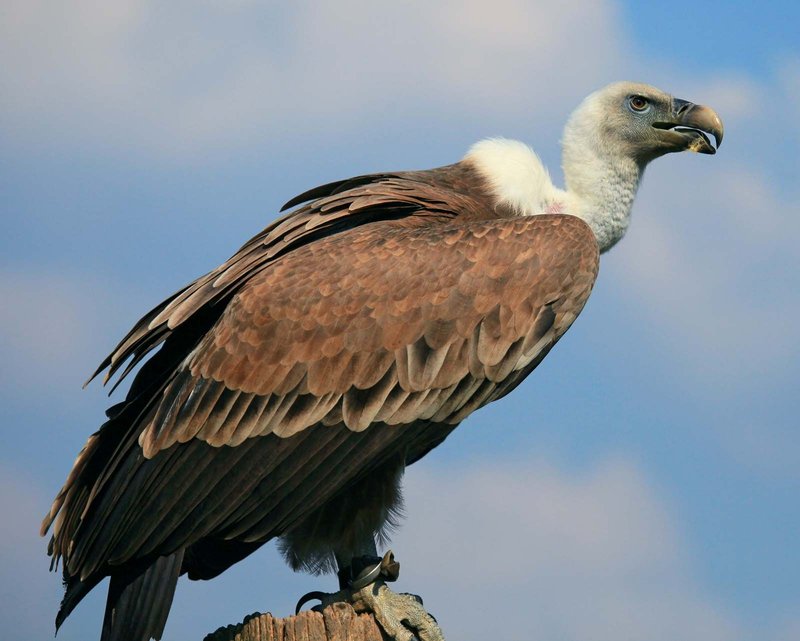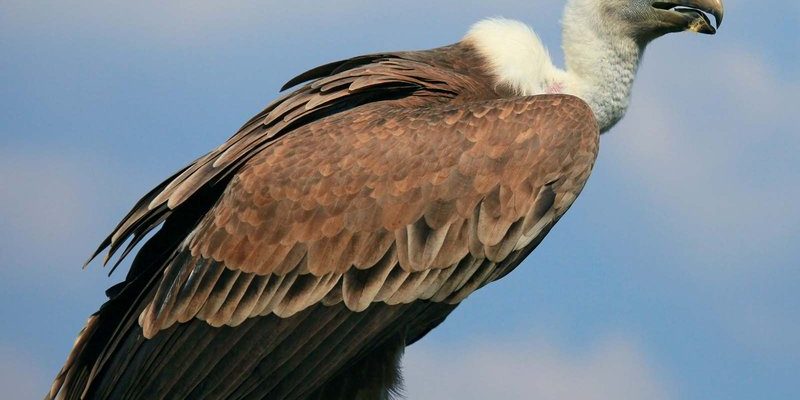
Raising young vultures is a unique process filled with teamwork, care, and a few surprises. Just like how we might gather around the dinner table to share a meal, vultures come together in the wild to ensure their offspring are fed and protected. So, how exactly do these remarkable birds go about parenting? Let’s break it down into some intriguing aspects of vulture life.
The Vulture Family Structure
In the realm of vultures, family dynamics are crucial for survival. Most vultures are monogamous, meaning they mate for life. This bond helps them efficiently raise their young. Both parents take on specific roles, and their teamwork is vital. Imagine two partners balancing a busy household while making sure their children are nurtured.
The female typically chooses a nesting site, often in rugged cliffs or tall trees that offer safety from predators. Once she lays her eggs, which usually number about one to three, both parents will share incubation duties. These nests often incorporate materials like sticks and grass, creating a cozy environment for the upcoming chicks.
Just like in human families, communication is key. Vultures use a variety of vocalizations and body language to coordinate their activities while nesting. You might be wondering how they know when it’s time to switch roles or care for the young. It’s all about instincts, and vultures have honed these over thousands of years.
Egg Incubation and Hatching
Egg incubation is a critical phase in a vulture’s life cycle. The parents keep the eggs warm and protected, ensuring the embryos develop properly. Incubation lasts about 30 to 60 days, depending on the species. During this period, the dedicated parents take turns sitting on the eggs, keeping them safe from the elements and potential predators.
Here’s the thing: while one parent incubates, the other is out foraging for food. This is crucial because both parents need to stay strong to care for their hatchlings. They often feast on carrion, which is plentiful in many areas. You could think of it as a busy grocery run, ensuring the kitchen stays stocked for the family.
Once the eggs hatch, it’s a moment of joy and relief. Chicks emerge with soft, downy feathers and are completely dependent on their parents for food and warmth. The first few weeks are especially critical, as the young vultures learn to survive in the wild.
Feeding the Young
Feeding time for young vultures is a fascinating process. The parents provide regurgitated food, which is essential for the chicks’ development. This might sound a bit gross, but it’s the vulture way of keeping their young well-nourished. The adult vultures swallow the scavenged food, digest it slightly, and then bring it back up to feed their little ones.
During the first few weeks after hatching, the chicks are unable to fly or find food on their own. This is a vulnerable time, as they rely completely on their parents for survival. Vulture chicks can eat a lot—sometimes up to three times their body weight in a day. Talk about a healthy appetite!
Interestingly, the parents often have to compete for food. They might scout for carcasses together but will also know each other’s strengths in finding a good meal. This partnership is crucial, as it allows them to ensure their growing family is well-fed without risking their own safety too much.
Growth and Development of the Chicks
As the weeks pass, vulture chicks grow rapidly, gaining feathers and strength. By six weeks, they start to resemble small versions of their parents. During this time, both parents play a vital role in teaching their chicks essential survival skills. This phase can be compared to a parent teaching their child to ride a bike—supporting them while letting them experience independence.
The chicks also become more active, exercising their wings and learning to navigate their environment. You might see them flapping around the nest or attempting short flights. This is all part of building muscle and coordination, preparing them for the day they’ll leave the nest.
Interestingly, social interaction among siblings is common. Young vultures may engage in playful behavior, which helps them develop essential social skills. These moments are crucial, as vultures aren’t just solitary scavengers; they thrive in the company of others, especially when it comes to survival.
Fledging and Independence
Fledging is an exciting milestone in a vulture’s life. This is when the young birds leave the nest for the first time, and it can be a dramatic event. Typically, vultures begin to fledge at around 10 to 12 weeks old. During this time, they take short flights, building confidence and refining their abilities.
Once they’ve fledged, the parents continue to support their young. They’ll show them where to find food and how to interact with other vultures. Here’s the thing: even after leaving the nest, young vultures will stick around for months, learning valuable lessons from their parents before fully striking out on their own.
Many species of vultures also display a sort of “teenage” phase where they’re independent yet still rely on their parents’ experience. It’s a bit like a college student coming home for the summer—occasionally present but still exploring their individual paths.
Challenges Young Vultures Face
Despite their incredible upbringing, young vultures face many challenges. One major threat is predation. While adult vultures are generally safe from most predators, young ones are vulnerable until they gain the skills needed to defend themselves. They must learn quickly to avoid danger, or they could become easy targets.
Food scarcity is another issue. As they grow older, young vultures must adapt to finding food independently. They may have to compete with other scavengers and learn the ins and outs of locating a meal. Just like a teenager learning to budget their resources, these young birds have to figure things out on their own.
Habitat loss is a growing concern for vultures worldwide. As human activities encroach on their natural spaces, they may struggle to find suitable nesting sites and food sources. Conservation efforts are crucial to ensure these magnificent birds can continue to thrive and raise their young as they have for generations.
Why Vulture Parenting Matters
Understanding how vultures raise their young sheds light on the importance of these birds in our ecosystem. Vultures play a crucial role in maintaining a healthy environment by cleaning up carrion and preventing the spread of disease. Their unique parenting approach highlights the bonds formed between parents and offspring, emphasizing the importance of teamwork in both the animal kingdom and our own lives.
So next time you see a vulture soaring through the sky, remember that there’s a whole lot more going on than meets the eye. These birds are nurturing, strong, and remarkably resilient. Their parenting techniques showcase not just survival instincts but also the art of raising a family in the wild.
In the end, vultures remind us that even in the harshest environments, love and care can flourish. Whether they’re teaching their young to fly or searching for food, vultures show us the beauty of life in the wild. Let’s cherish and protect these incredible creatures for generations to come.

